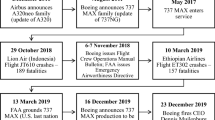Abstract
Shore-based ship assistance is a topic that increasingly is attracting attention from the maritime community. Subjects such as shore-based pilotage and VTS are often discussed and there is technological and political pressure towards more extensive forms of such assistance. Perhaps less often mentioned, but not less important, is the human side of these subjects. The present paper examines two of the central concerns for the people who actually work within today’s VTS centers, namely communication and trust. The study consisted of a literature review, study visits, observations and interviews.
Communication and trust are found to be closely related, and one main finding is that adapting one’s means of communication to the context can be a very powerful (and necessary) tool for the creation of trust. Another important result is that the ability of the shore-based operator to see the situation from the viewpoint of the crew is crucial for the creation and maintenance of trust.
Similar content being viewed by others
References
Aho Mathiesen, Hella. 2009. Begreppet tillit, sjöfart och flygtrafik [in Swedish]. Department of Computer and Information Science: Linköping University.
Bruno, Karl. 2008. Lotsning som kontroll: En explorativ studie av lotsning från land [in Swedish]. BSc thesis, Linköping University.
Bruno, Karl, and Margareta Lützhöft. 2009. Shore-based pilotage: Pilot or autopilot? Piloting as a control problem.Journal of Navigation 62: 427–37.
Flin, Rhona, and Calvin Burns. 2004. The role of trust in safety management.Human Factors and Aerospace Safety 4: 277–87.
Hollnagel, Erik, and David D. Woods. 2005.Joint cognitive systems: Foundations of cognitive systems engineering. Boca Raton: CRC Press.
International Maritime Organization. 2001. IMO Standard Marine Communication Phrases. Resolution A.918(22).
Johansson, Björn J. E., and Per-Arne Persson. 2009. Reduced uncertainty through human communication in complex environments.Cognition, Technology & Work 11: 205–14.
Lützhöft, Margareta, and Karl Bruno. 2009. Talk and trust before technology: First steps toward shore-based pilotage. Paper presented at the RINA Human Factors in Ship Design and Operation conference, February 25–26 in London, U.K.
Lützhöft, Margareta, Joakim Dahlman, and Johannes Prison. 2008.Report of pilot study “Shore based pilotage”. Department of Shipping and Marine Technology: Chalmers University of Technology.
McAllister, David J. 1995. Affect- and cognition-based trust as foundations for interpersonal cooperation in organizations.Academy of Management Journal 38: 24–59.
McCarthy, John, Peter Wright, and Michael Cooke. 2004. From information processing to dialogical meaning making: An experiential approach to cognitive ergonomics.Cognition, Technology &Work 6: 107–116.
Meyerson, Debra, Karl E. Weick, and Roderick M. Kramer. 1996. Swift trust and temporary groups. InTrust in organizations: Frontiers of theory and research. Ed. Roderick M. Kramer and Tom R. Tyler, 166–95. Thousand Oaks: SAGE Publications.
Popa, C. L. 2005. Initial trust formation in temporary small task groups: Testing a model of swift trust. Partial PhD diss., Kent State University.
Prison, Johannes, Margareta Lützhöft, and Thomas Porathe. 2009. Ship sense —What is it and how does one get it? Paper presented at the RINA Human Factors in Ship Design and Operation conference, February 25–26 in London, U.K.
Riegelsberger, Jens, Angela M. Sasse, and John D. McCarthy. 2005. The mechanics of trust:A framework for research and design.International Journal of Human-Computer Studies 62: 381–422.
Rochlin, Gene I. 1999. Safe operation as a social construct.Ergonomics 42: 1549–60.
Rousseau, Denise. M., Sim B. Sitkin, Ronald S. Burt, and Colin Camerer. 1998. Not so different after all:A cross-discipline view of trust.Academy of Management Review 23: 393–404.
Sanne, Johan M. 2003. Creating trust and achieving safety in air traffic control. InConstructing risk and safety in technological practice. Ed. Jane Summerton and Boel Berner. London, Routledge: 140–56
Author information
Authors and Affiliations
Rights and permissions
About this article
Cite this article
Bruno, K., Lützhöft, M. Virtually being there: Human aspects of shore-based ship assistance. WMU J Marit Affairs 9, 81–92 (2010). https://doi.org/10.1007/BF03195167
Issue Date:
DOI: https://doi.org/10.1007/BF03195167



